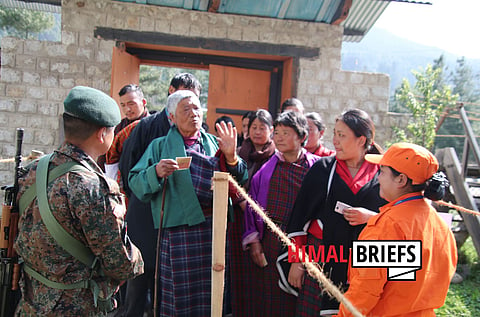The path to women’s political participation in Bhutan
"Of course, it was also because they trusted my capability, but I have seen that the majority went by the party's popularity in the particular constituency," Norbu Wangzom, a 41-year-old former member of parliament representing Bhutan's opposition party, the Druk Phuensum Tshogpa (DPT), said. Wangzom was elected to represent the Jomotshangkha Martshala constituency, located in the south-east of Bhutan, for the second time in 2018. "As long as they like the party, they did not mind voting for a woman," she added, but they voted for her "not necessarily because they believed in a woman candidate." Regardless, Wangzom is committed to serving her constituents to the best of her ability.
Encouraged by her local community, Wangzom first contested and won a seat in Bhutan's National Council elections in 2008. As a newcomer to politics, she recalled, her initial experience was quite positive. When she contested again in 2013, she lost her seat. Wangzom ran again in 2018, ultimately winning the seat back. When we spoke in February 2023, she recognised how gender plays a role in Bhutanese politics and noted that there is a disparity between how much time and importance men are given on political platforms as compared to women. "Participation is important," Wangzom emphasised, "There are challenges, but we shouldn't give up as a woman."

